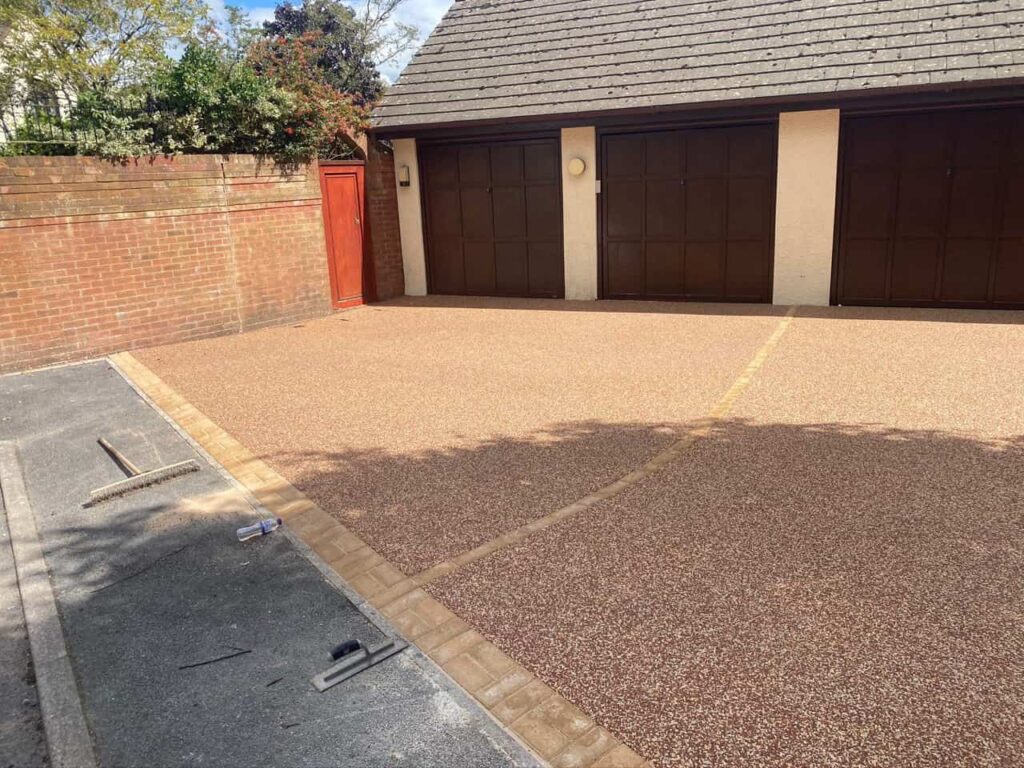Can Resin Driveways Be Installed in Wet Weather? Here’s What You Need to Know
Resin driveways have gained popularity in the UK for their durability, aesthetic appeal, and low maintenance. However, given the unpredictable British weather, a common question from homeowners is whether resin driveways can be installed in wet conditions. At Chatteris Driveways, located in Chatteris, Cambridgeshire, we understand the importance of timing when it comes to driveway installations. In this blog post, we’ll explore the impact of wet weather on resin driveway installations and provide you with the information you need to make informed decisions.
The Importance of Weather Conditions for Resin Driveway Installation
The installation of resin driveways involves combining resin with aggregates to create a smooth and durable surface. The mixture is then laid onto a prepared base. While resin driveways are highly resilient once cured, the installation process requires specific conditions for optimal results.
Why Wet Weather Is a Concern
- Curing Process: Resin driveways rely on a chemical reaction for curing, and this process is sensitive to moisture. Excessive humidity or rain during installation can interfere with the bonding process, leading to a compromised finish. The presence of water can dilute the resin, resulting in a surface that is prone to cracks, lifting, and other issues over time.
- Surface Preparation: A clean and dry surface is essential for the proper adhesion of the resin mixture. Wet conditions can affect the base, whether it’s concrete, asphalt, or another material. If the base is damp or contains standing water, it can weaken the bond between the resin and the surface, leading to long-term durability problems.
- Appearance and Finish: Wet weather can also impact the appearance of your resin driveway. Moisture can cause clouding, discolouration, and uneven textures in the finish, affecting both the aesthetics and overall quality of the driveway. To achieve the seamless, polished look that resin driveways are known for, dry conditions are preferable during installation.
Best Practices for Installing Resin Driveways in the UK
- Monitoring Weather Forecasts: At Chatteris Driveways, we carefully monitor the weather before scheduling any resin driveway installation. It’s essential to choose a period of dry, stable weather to ensure the best possible results. In the UK, spring and summer months generally offer more consistent dry spells, making them ideal for resin installations.
- Using Protective Covers: If the weather is unpredictable, protective covers can be used during the installation process to shield the area from unexpected showers. However, this is a temporary measure and is only effective in mild conditions. In cases of sustained wet weather, it’s advisable to delay the installation.
- Ensuring Proper Drainage: Even when the driveway is installed in dry conditions, ensuring that the area has proper drainage is vital. This helps prevent water from pooling on the surface and reduces the risk of damage in the future. Resin driveways are permeable, allowing water to drain through, but a well-prepared base with good drainage is still essential.
Conclusion
While resin driveways offer numerous benefits, it’s crucial that they are installed in the right conditions to ensure long-lasting performance and visual appeal. Wet weather can significantly impact the installation process, leading to potential issues with durability, appearance, and overall quality. At Chatteris Driveways, we prioritise the success of every project by carefully planning around weather conditions and offering professional advice to our clients in Chatteris, Cambridgeshire. If you’re considering a resin driveway, contact us today to schedule your installation during the ideal conditions, ensuring a flawless and enduring finish.
Call us on: 01354 707 465
Click here to find out more about Chatteris Driveways
Click here to complete our contact form and see how we can help you with your driveway needs.

